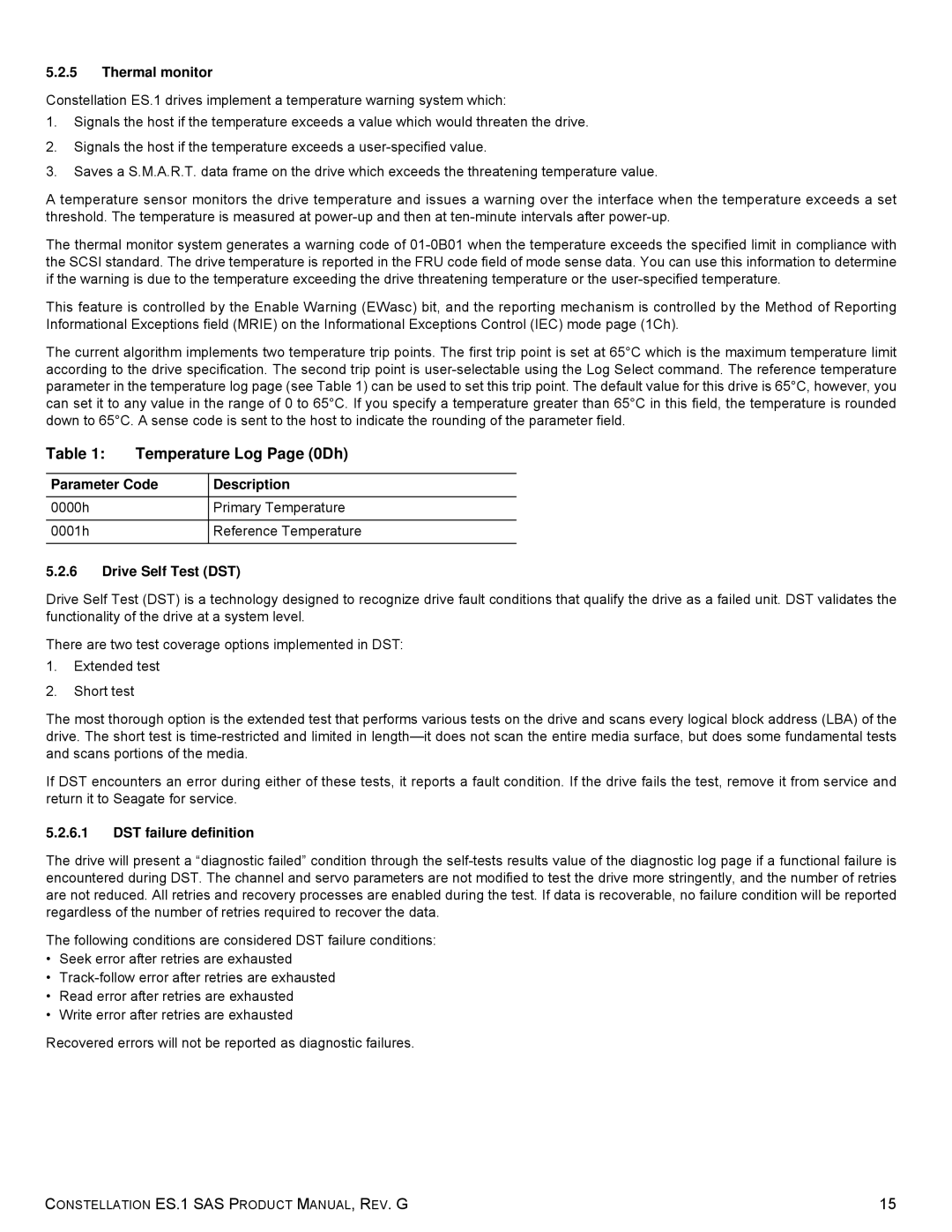ST2000NM0063 specifications
The Seagate ST2000NM0063 is a high-performance internal hard disk drive designed for enterprise environments, offering a robust solution for those requiring reliable data storage. With a storage capacity of 2TB, this drive is ideal for both small and large enterprises, catering to applications ranging from data centers to surveillance systems.One of the main features of the ST2000NM0063 is its 7200 RPM rotational speed, which ensures rapid data access and improved overall performance. This speed allows for faster read and write times, making it suitable for applications that demand quick data retrieval and processing. The drive supports a SATA 6Gb/s interface, which provides enhanced data transfer rates. This modern interface is essential for maximizing throughput, particularly when deployed in environments where speed is critical.
In terms of technology, the Seagate ST2000NM0063 utilizes Advanced Format Technology, enhancing data storage efficiency and increasing the number of user-addressable sectors. This feature allows for better alignment of data on the drive, which can lead to improved performance and reliability. Additionally, the drive incorporates the Seagate PowerChoice technology, enabling energy-efficient operations. This technology helps reduce power consumption during idle periods, contributing to lower operating costs and a smaller carbon footprint.
The ST2000NM0063 also emphasizes data integrity and reliability. Equipped with features such as error recovery control and vibration tolerance, this drive is designed to operate in challenging conditions. These attributes make it an excellent choice for RAID configurations and other enterprise applications that require high data availability and protection against data loss.
Furthermore, the ST2000NM0063 has a mean time between failures (MTBF) rating of 1.2 million hours, signifying its durability and long lifespan. This reliability is crucial for critical business applications where downtime is not an option.
In summary, the Seagate ST2000NM0063 combines high capacity, excellent performance, and advanced technologies to meet the demanding needs of enterprise storage. Its reliability, efficiency, and robust features make it a preferred choice for organizations looking to enhance their data storage solutions while ensuring optimal performance and longevity. Whether utilized in cloud storage, surveillance, or data center applications, this hard drive stands out as a dependable component in any IT infrastructure.
